
by Gideon Marcus
Bouncin' Back to You
Cast your memories back to the distant past — about four years. Remember when Bobby Vee exploded on the scene with his first hit, Rubber Ball.

It's a song about a fellow who should know better than to stick with an untrue love but, like a rubber ball, keeps coming back to her anyhow. The tune came to my mind more than once as I read this month's Fantasy and Science Fiction, a magazine that has plumbed depths often enough to tempt me to cancel my subscription, but on occasion (like this one) produces such an excellent issue that I remember the good times of the 1950s, and love is rekindled.
Is it the doing of new editor Joe Ferman? Statistical variation? Either way, it was a pleasure to read. Come join me and see why:
Bounce my heart around
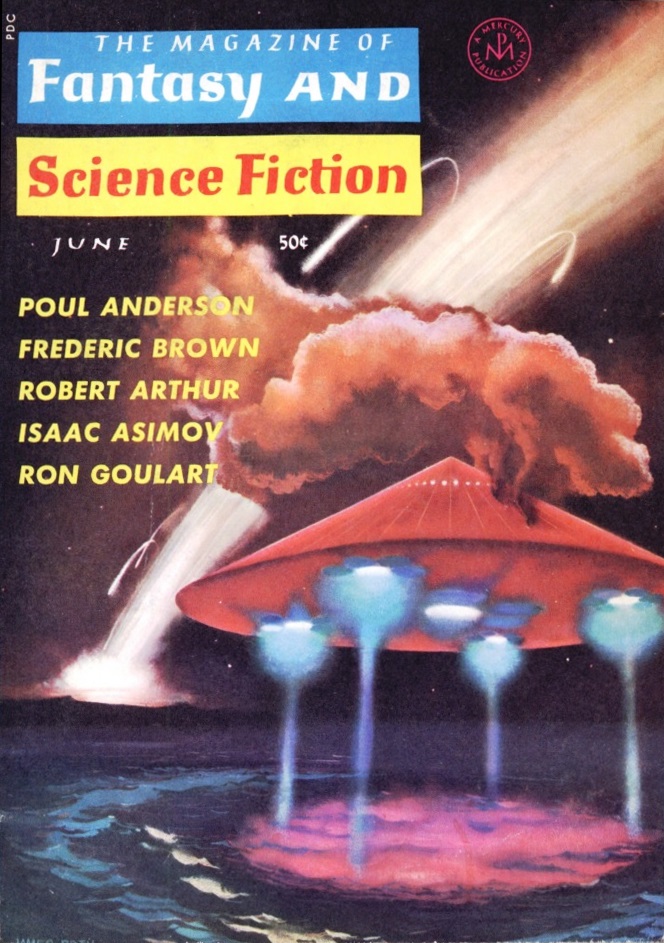
by James Roth
Admiralty, by Poul Anderson
We begin with an ending of sorts, the conclusion to the exploits of Gunnar Heim, late of the Federation Navy, now a privateer savaging the Aleriona patch of stars known as The Phoenix. His goal, to prosecute an undeclared war to liberate the conquered human world of New Europe before its inhabitants run out of Vitamin C, is about to come to fruition. But how can one ship achieve victory against a starfaring empire? More personally, will an old flame of Heim's be waiting for him planetside when all is said and done?
Admiralty is Anderson near the top of his form, which, like a sine wave, has definite positive and negative amplitudes. What makes the piece frustrating is its incompleteness. This novella and the other two that have recently appeared in F&SF are about to be compiled into a book called The Star Fox, and I strongly suspect that there will be expansions above and beyond what has appeared in the magazines. Indeed, some of the most exciting episodes in Admiralty, like the capture of the Aleriona prize, Meroeth, are dispatched in a paragraph or two of exposition. What remains is something of a Readers Digest abridged version — entertaining but dissatisfying.
Also, I wish Anderson wouldn't assume that we all speak French; there are paragraphs and paragraphs of the stuff that go largely untranslated. I'm going to start sending him letters in Japanese…
Anyway, four stars, for this and the whole sequence, and I suspect the book will be even better. Certainly Hugo material.
Eine Kleine Nachtmusik, by Fredric Brown and Carl Onspaugh
Dooley Hanks, a clarinetist of modest talent but tremendous desire, scours the world looking (listening?) for The Sound. When he finds it, in an obscure town in Germany, the temptation to claim it for his own becomes overpowering…and hazardous.
A powerful story, evocative and beautifully told, it's the kind of reworked fable Robert F. Young wishes he could write.
Five stars.
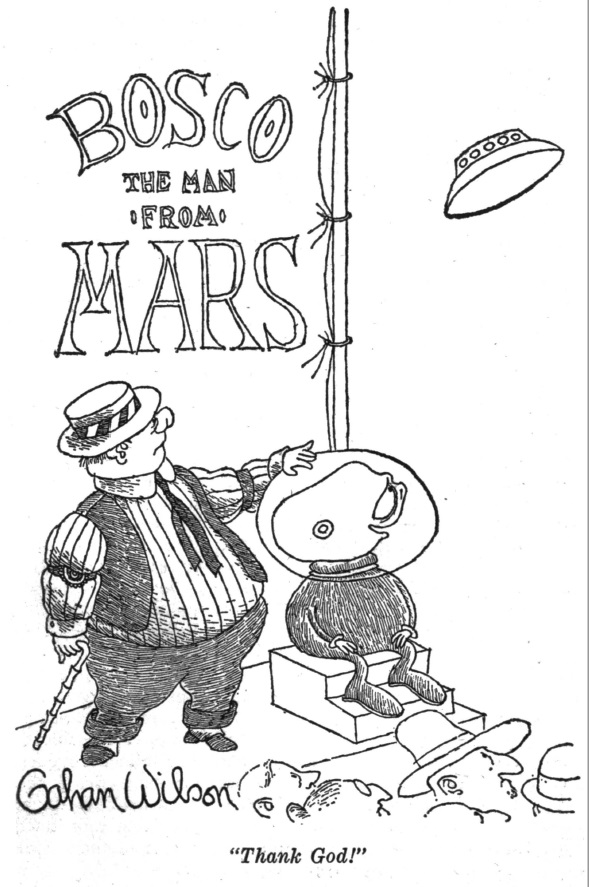
by Gahan Wilson — better than his previous ones
Books, by Judith Merril

Normally, I don't give inches to the book column, but Ms. Merril is cutting and insightful in a way I can only hope to approximate. Don't miss her take on the latest SF to cross her desk (many of which have been covered by the Journey).
Rake, by Ron Goulart
Ben Jolson, shape-changing agent of the Chameleon Corps, is back for another adventure. This time, in the guise of a student, he's investigating the development of a super-weapon by an academic ensconced at a public college.
This tale is far more obviously slapstick than his previous one, which I had quite liked. Rake is just too silly, too random to be very good, and there's no reason for such a short piece to begin in medias res followed by a flashback to How It All Began.
Two stars.
Phoenix (the Science Springboard), by Theodore L. Thomas
Normally, Thomas' non-fiction vignettes, more story seed than article, aren't worth the two pages they're printed on. This time, I quite liked his postulation that at the center of every gas giant lies a terrestrial core. I don't know if it's accurate; I don't know how we could verify the accuracy, but it is an exciting idea that the planets of the solar system all started out as roughly similar planetoids that grew atmospheres as time went on. Only the inner ones lost theirs because it was too warm so close to the Sun.
Of course, it's easy to make models that fit the one set of data we have.
Four stars, anyway.
The Ancient Last, by Herb Lehrman
The first of two reader-submitted stories fulfilling the call for tales involving Univac and Unicorns. This is the more poetic of the pair. Interestingly, its poignant ending is somewhat marred by two additional paragraphs; because the offending superfluity occurs on a following page, I didn't originally see them, and I thought the ending was stronger than it ended up being.
Funny enough, I was recently rejected by F&SF, whose editor suggested I trim out my terminal line to give the ending more punch. I did. We'll see how it does.
Stand-In, by Greg Benford
Another first from a fellow San Diego native. This Univac/Unicorn story is more swinging and fun, but not particularly consequential.
I give three stars to both. I'm glad the authors got their breaks and I hope this sets them on their way to stardom.
Story of a Curse, by Doris Pitkin Buck
Earth spacers are forever restless in search of change, intolerant of stagnation. But when Earth, itself, has changed, the astronauts see the folly of their wanderlust.
Long on emotion, short on coherence, Story is more prose-poem than science fiction. I liked it well enough, though. Three stars.
Nabonidus, by L. Sprague de Camp
Archaeologist meets a ghostly colleague of ancient vintage. This poem has a strange meter, but again, it's appealing. Three stars.
Future? Tense!, by Isaac Asimov

In a surprise disappointment, the science column is probably my least favorite piece of the issue. The Good Doctor begins by relating how on-the-spot he feels when asked to predict the future, then says he'll do it anyway, and then doesn't really do it at all.
At a recent bookstore interview, I was asked if a science fiction story's value is based on its predictive accuracy. I felt that the answer I gave ("No — its value is in how well it entertains; science fiction can't predict the future; it can only extrapolate current trends.") was better and more succinct than the one Dr. A offers.
Two stars.
Of Time and the Yan, by Roger Zelazny
The Last Man of Earth meets the Last Man of Mars; unfortunately, time is not on the side of humanity.
Zelazny increasingly makes his stories more affectedly "literate." It may get his stories sold, but it's getting tedious. Two stars. (Your hue and cry tells me I'm a too-harsh boor. I do not disagree.)
Jabez O'Brien and Davy Jones' Locker, by Robert Arthur
Lastly, here is the tale of a young New England fisherman who seeks to win fame, fortune, wisdom and happiness through the capture of a mermaid. Instead, he winds up…well, best not to spoil this gem of a story.
It's an absolutely charming work, the best I've seen from Mr. Arthur, and made all the better for my imagining it being narrated by Fractured Fairy Tale's Edward Everett Horton (now you'll have his voice in your head, too!)
Five stars.
My heartstrings, they just snap
In the end, even this issue bounces around like a rubber ball, but the pages of quality far outnumber the momentary lapses. The June 1965 issue of F&SF is a stand-out…and my love is rekindled.
Don't break my heart, Joe!
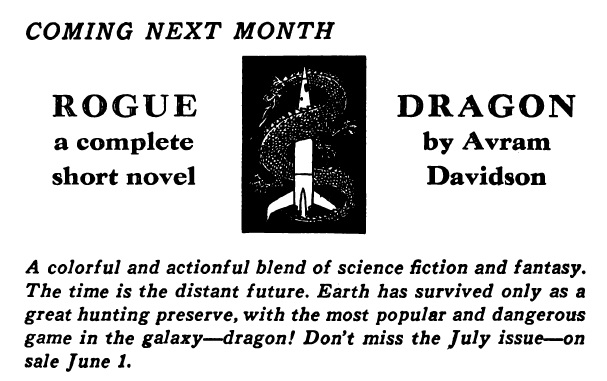
Don't forget to register for our show on May 23 at 1PM DT! We really want to see you there and hear your questions.

https://event.webinarjam.com/register/34/3q3prsl6

 The Nixons participating in Earth Day.
The Nixons participating in Earth Day.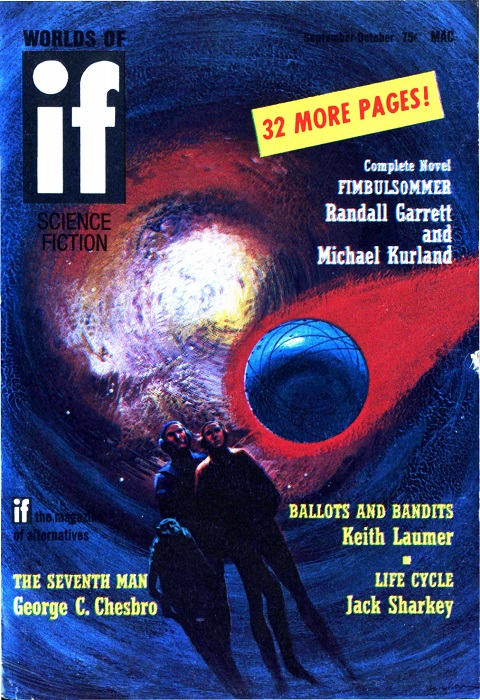 Suggested by “Fimbulsommer.” Art by Gaughan.
Suggested by “Fimbulsommer.” Art by Gaughan.
![[August 2, 1970] Fimbulsommer (September-October 1970 <i>IF</i>)](https://galacticjourney.org/wp-content/uploads/2025/07/IF-1970-09-Cover-480x372.jpg)
![[July 12, 1960] The New Generation (August 1970 <i>Fantastic</i>)](https://galacticjourney.org/wp-content/uploads/2025/07/COVERSMALL-672x256.jpg)




![[May 12, 1970] War and Peace (June 1970 <i>Fantastic</i>)](https://galacticjourney.org/wp-content/uploads/2025/05/COVERSMALL-672x372.jpg)


![[April 14, 1970] Take this spaceship to Alpha Centauri (May 1970 <i>Venture</i>)](https://galacticjourney.org/wp-content/uploads/2025/04/Venture-1970-05-Cover-475x372.jpg)

 You probably know who most of these people are.
You probably know who most of these people are.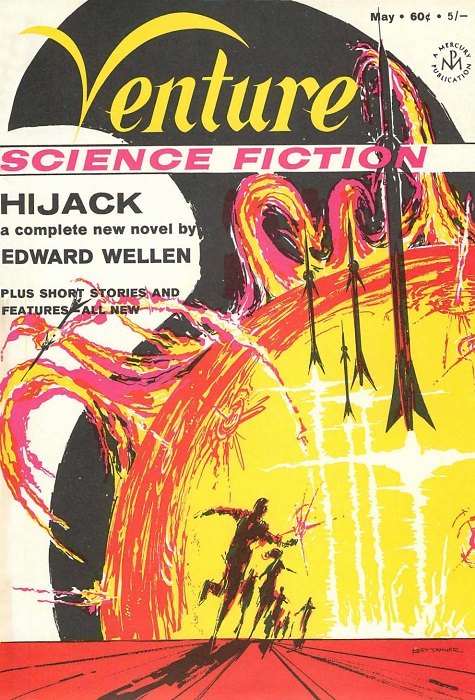 I’m still not sold on Tanner’s covers, but this one is better than most. Art by Bert Tanner
I’m still not sold on Tanner’s covers, but this one is better than most. Art by Bert Tanner![[March 20, 1969] Going through the motions… (April 1969 <i>Fantasy and Science Fiction</i>)](https://galacticjourney.org/wp-content/uploads/2024/03/690320cover-672x372.jpg)

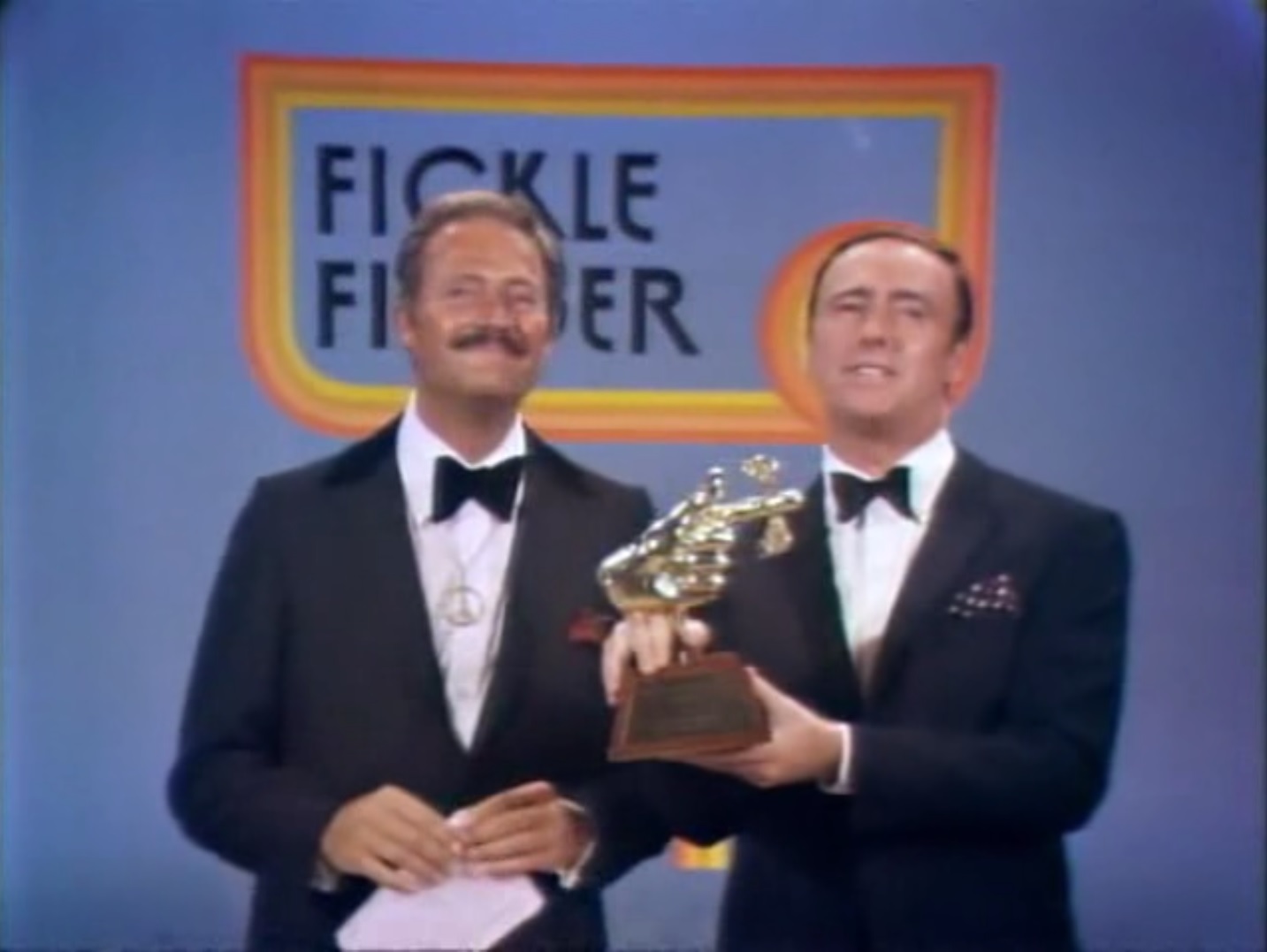




![[April 16, 1966] Non-taxing (May 1966 <i>Fantasy and Science Fiction</i>)](https://galacticjourney.org/wp-content/uploads/2021/04/660416cover-664x372.jpg)






![[December 18, 1965] Bulges and Depressions (January 1966 <i>Fantasy and Science Fiction</i>)](https://galacticjourney.org/wp-content/uploads/2020/12/651216cover-672x372.jpg)





![[May 18, 1965] Rubber Ball (or Skip the End) (June 1965 <i>Fantasy & Science Fiction</i>)](https://galacticjourney.org/wp-content/uploads/2020/05/650518cover-664x372.jpg)





